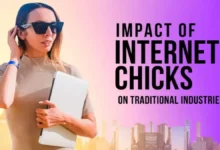Drive Social Media Lawsuit: Understanding the Complexities and Implications

Drive Social Media Lawsuit In the fast-paced digital era, social media has become an integral part of our daily lives. From staying connected with friends and family to marketing businesses, it’s hard to imagine life without platforms like Facebook, Instagram, Twitter, and TikTok. However, with the growing power of these platforms, a new wave of challenges has emerged, especially around issues of defamation, privacy, misinformation, and data protection. As social media networks continue to shape the landscape of communication, there has been an increasing number of lawsuits related to their use. In this article, we will delve into the intricacies of the “drive social media lawsuit” concept and examine the various factors at play.
Understanding the Rise of Social Media Lawsuits
As social media platforms have become major players in both personal and professional spheres, the legal landscape surrounding them has expanded significantly. From influencers and content creators to regular users, individuals are more frequently finding themselves involved in lawsuits related to social media activity. These lawsuits can range from issues of libel, slander, copyright infringement, or the violation of platform policies, and the results can have serious consequences for both the individuals involved and the platforms themselves.
Defamation and Reputation Damage
One of the primary reasons people file social media lawsuits is to address defamation, which occurs when false statements are made that harm an individual’s reputation. Social media’s fast-moving nature makes it easy for rumors or malicious posts to spread rapidly. When these posts go viral, the damage to a person’s reputation can be catastrophic. Victims of defamatory posts may take legal action against the individual responsible for posting the harmful content, or even the platform itself if they fail to take down the content quickly enough.
For example, if someone falsely accuses another person of a crime on Twitter or Facebook, it can cause significant harm to their reputation. In these cases, the affected party may choose to file a lawsuit against the social media platform or the individual responsible for the post, seeking damages for harm to their reputation. The issue becomes even more complex when considering the platform’s role in moderating or removing content, as there’s often a gray area about how much responsibility platforms should bear.
Privacy Violations and Data Leaks
Another common reason for lawsuits in the social media space is related to privacy violations and data leaks. With the vast amounts of personal data shared on social media platforms, concerns about data protection are growing. There have been several high-profile cases where user data was exposed or mishandled by social media companies, leading to lawsuits for breaches of privacy. These lawsuits often argue that the platform failed to adequately protect user data, resulting in financial or personal harm to users.
Social media users often share a significant amount of personal information, including their location, preferences, and habits, often without considering the long-term consequences. When this data is accessed without consent or falls into the wrong hands, individuals may find themselves in situations that threaten their security or even their safety. As a result, the drive for social media lawsuits around privacy concerns has increased in recent years.
The Role of Social Media Platforms in Legal Disputes
When it comes to lawsuits related to social media activity, the platforms themselves are often pulled into the mix, even if they are not directly involved in the dispute. This raises an important question: to what extent should social media companies be held responsible for the content posted by users on their platforms?
Platform Liability
One of the most contentious issues in social media lawsuits is whether platforms should be held liable for the content posted by users. In many cases, the argument is that social media companies are simply hosting user-generated content and should not be held responsible for what individuals post. This concept is backed by Section 230 of the Communications Decency Act in the United States, which protects platforms from liability for the content posted by their users.
However, this legal shield has been increasingly challenged. Critics argue that platforms like Facebook, YouTube, and Twitter have gained significant control over the types of content that appear on their sites through their algorithms and content moderation practices. As these platforms continue to grow in influence, calls for greater accountability are getting louder. Lawsuits have been filed that claim platforms should be held accountable for enabling harmful content to spread, even if they didn’t directly create or post the content.
Content Moderation and Censorship Issues
Another key issue that often arises in social media lawsuits is the question of content moderation and censorship. Platforms like Facebook and Twitter have implemented strict content moderation policies, removing posts that violate their community guidelines. However, these decisions are often controversial. Critics argue that social media platforms sometimes overreach in removing content, and censoring speech that should be protected, while others believe platforms do not do enough to remove harmful or offensive content.
The issue of censorship can lead to lawsuits where users claim their freedom of speech is being violated, or, conversely, where individuals file lawsuits because harmful or false content was allowed to remain on a platform. These cases highlight the fine line social media companies must walk when it comes to balancing free expression with protecting users from harmful content.
Navigating Legal Challenges for Content Creators

As a content creator, influencer, or business operating on social media, understanding the potential legal pitfalls is crucial. In an era where cancel culture and viral posts can have significant consequences, content creators are increasingly aware of the legal ramifications of their actions online. Whether it’s making a controversial statement, using copyrighted material without permission, or engaging in deceptive marketing practices, social media lawsuits are something every content creator needs to understand.
Copyright and Intellectual Property Concerns
Copyright infringement is one of the most common legal issues that content creators face on social media. With billions of videos, photos, and memes being shared daily, it’s easy for someone to post copyrighted content without permission. This can lead to lawsuits from the original content creators or copyright holders seeking damages. For instance, an influencer who posts a song or artwork they don’t own could find themselves facing a copyright infringement lawsuit from the original artist.
Content creators must also be mindful of how they use third-party content, such as music or images, in their posts. Fair use laws allow for limited use of copyrighted material for purposes like commentary or criticism, but this is often a gray area that can be legally complicated. Understanding the boundaries of intellectual property law and ensuring proper licensing of content is essential for creators who want to avoid legal trouble.
Misleading Advertising and False Claims
Another growing area of legal concern for influencers and social media personalities is deceptive marketing and advertising. With the rise of sponsored posts and brand partnerships, influencers are often required to disclose when they are being paid to promote a product. Failure to do so can lead to legal action from regulatory bodies or consumers who feel misled.
For example, influencers who make false claims about the effectiveness of a product or service, without proper testing or evidence, may face lawsuits for misleading advertising. The Federal Trade Commission (FTC) has strict guidelines for influencers, and failing to disclose sponsored content or making unsubstantiated claims can result in hefty fines and legal consequences.
The Future of Social Media Lawsuits: Trends and Predictions
As social media continues to evolve, so too will the landscape of legal disputes surrounding it. The intersection of technology, law, and ethics is a constantly changing environment, and social media companies are constantly adapting to new challenges. So, what can we expect in the future when it comes to social media lawsuits?
Increased Regulation of Social Media Platforms
With the mounting number of lawsuits and public pressure, there is a growing call for more regulation of social media platforms. Governments around the world are beginning to implement stricter laws around data protection, online safety, and content moderation. In Europe, for example, the General Data Protection Regulation (GDPR) has already had a significant impact on how companies handle user data. Similar laws are being discussed in the United States, with proposals for tighter regulations that could expose social media platforms to greater liability.
As these regulations become more widespread, it’s likely that social media platforms will face more lawsuits, particularly around issues like data privacy, content moderation, and platform accountability.
The Emergence of New Legal Challenges
As new platforms emerge and technology continues to develop, new legal challenges will also arise. For instance, the rise of artificial intelligence and deepfakes could lead to entirely new categories of lawsuits related to misrepresentation or defamation. Additionally, the growing use of virtual reality and the metaverse might present new avenues for social media lawsuits as digital interactions become more immersive and complex.
Social media companies will need to stay ahead of these emerging trends, creating new guidelines and systems to ensure they are complying with evolving legal standards. Content creators will also need to stay informed about new laws and best practices to protect themselves from potential legal pitfalls.
Drive Social Media Lawsuit Conclusion
The world of social media lawsuits is a complex and rapidly evolving one. With the rise of defamation cases, privacy violations, copyright disputes, and the ever-present question of platform liability, understanding the legal landscape is crucial for anyone engaged in the social media ecosystem. Whether you’re a content creator, an influencer, a business, or an everyday user, the implications of social media lawsuits can have far-reaching consequences. As social media continues to influence our personal and professional lives, it’s important to stay informed about your rights and responsibilities in this digital age.


